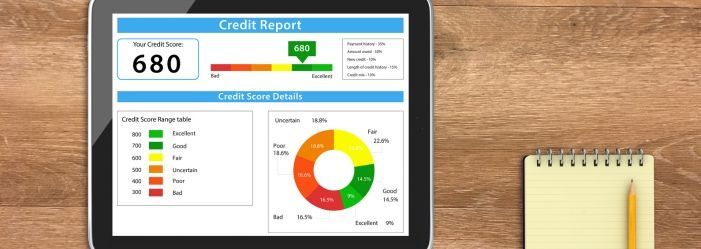Last Updated: March 29, 2024
Keep A Careful Eye On Your Credit Health

Disclaimer: We are not qualified legal or tax professionals and are not giving advice. Always speak with a qualified professional before making any legal or financial decisions.
Pacific Debt Relief is not a credit repair organization nor does our program aim to improve your credit score. The information below is for educational purposes to help consumers make informed decisions as it relates to credit and debt.
Maintaining a vigilant eye on your credit score is more crucial than ever in today’s digital age, where financial security is paramount. Whether you're planning to apply for a loan, secure a mortgage, or simply safeguard your financial health, understanding and monitoring your credit score can make all the difference.
With a myriad of apps available to help track your credit score and protect against identity theft, choosing the right one can be overwhelming. In this guide, we dive into the eight best apps for monitoring your credit score, offering a comprehensive look at their unique features, security measures, and how they stand out in the crowded financial tech landscape.
From free services that provide basic monitoring to premium apps that offer real-time alerts and fraud protection, our aim is to equip you with the information needed to make an informed decision about which app aligns with your financial goals and security needs.
Click here if you'd prefer to directly engage with a debt specialist for a free consultation.
Why Should You Monitor Your Credit Report?
Monitoring your credit might seem like a mundane task. After all, you only need good credit and a great FICO score when you are looking for loans or mortgages right? In reality, monitoring your credit report has never been more important!
First, mistakes do happen. Check to make sure all the information on your credit report is correct. Anything from the mis-spelling of your name to an old debt still clinging to life could damage your score.
Second, your credit report might indicate the first signs of identity theft. Look for any odd loans or credit cards that don’t look familiar to you.
You are entitled to one free credit report a year from TransUnion, Equifax, and Experian. Try to stagger them out so that you get one every four months. (for instance, TransUnion in January, Equifax in May, and Experian in September).
However, you should perform credit monitoring by checking your credit reports more frequently for signs of fraud or errors. There are some apps and services available. Some of the services, like Lifelock, Identity Guard, and Identity Force, are very costly. Others are free and offer similar services. Why pay for what you can find yourself?
Below is a list of apps and websites that are recommended online by experts for tracking your credit score.
Mint
Mint is both an app and a website that can be used for budgeting, paying bills, and tracking your finances. It is a simple way to keep an eye on your finances while on the go. You will get a VantageScore on your Equity report. It doesn’t show a FICO score.
Credit Karma
CreditKarma offers both an app and a website. You’ll get a FICO score based on two credit reporting agencies, TransUnion and Equifax. You’ll also get credit card utilization and payment history. You can also link your credit cards to the app so that you can track all your spending in one place. CreditKarma is simple to use and sends you emails if reports change.
Credit Sesame
The app/website has three different levels. The free level includes free monthly credit scores and credit monitoring. You’ll find self-service tools to correct errors, detect fraud, and fight identity theft. You can even get $50,000 in identity insurance at the free level.
Premium services include daily credit-score updates, monthly credit reports, SSN monitoring, $1 million in identity theft insurance, and dispute resolution services. Plans begin at $9.95 a month, which is far cheaper than other paid services available.
MyFICO
This app is the official FICO monitoring app and reflects the FICO score that is used by most US financial institutions. It is not free, although the download is. It can be very expensive to get all the bells and whistles that can be gathered through other venues. Basic plans start at $19.95 a month, myFICO is probably best for someone with fraud and identity theft issues.
Discover Credit Scorecard
The app is available to you whether or not you have a Discover card. You will get a monthly FICO score based on your TransUnion report. Discover cardholders can sign up for social security protection which can be invaluable.
CreditWise from Capital One
This app is also available for non-cardholders. You’ll get free credit monitoring and a weekly VantageScore 3.0 credit score based on your TransUnion credit report. You’ll get a simulator to see what will happen to your utilization ratio (debt: credit) if you put large charges on your credit cards.
Cardholders can log in weekly to see an updated credit score and credit report.
MyCredit Guide from American Express
Like the other apps from credit card companies, you don’t need to be a cardholder. This is not a true app but rather a mobile optimized website. MyCredit Guide offers alerts if something affects your TransUnion credit report. It also includes a weekly Vantage 3.0 score based on TransUnion and a score simulator.
Experian CreditWorks Basic
The free version of the app allows access to your Experian credit report and FICO scores once a month. Since it is offered by Experian, it looks at your Experian credit report. The paid version includes credit monitoring.
Other Venues
Credit cards including Bank of America and Barclay offer free FICO scores based on TransUnion. Citi and Wells Fargo offer FICO scores based on Experian.
Your bank, credit union, or card issuers often will offer access to free VantageScores. VantageScores are a good start but are not as complete or correctable as a former credit report. Check with your bank to see what they offer.
Check All Three of Your Credit Reports
When monitoring your credit, it is essential to check your reports from all three major credit bureaus – Equifax, Experian, and TransUnion. Each bureau may contain different credit information about you. For example, a collections account might show up on one report but not the others. By accessing all three reports, you can get a comprehensive view of your credit profile and ensure there are no inaccurate or fraudulent entries.
It's important to stagger your free annual credit reports throughout the year. Instead of getting them all at once, request your Equifax report in January, Transunion in April, and Experian in August. This allows you to do a thorough review every four months instead of going an entire year between credit checkups. Don't forget to take advantage of your additional free weekly reports available during the pandemic from AnnualCreditReport.com.
Disputing Errors on Your Credit Reports
If you find mistakes or fraudulent activity on your credit reports, you have the right to dispute these with the credit bureaus. Here is a brief overview of the dispute process:
- Identify the specific information you are disputing. Note the account name, number, inaccuracy, etc.
- Prepare dispute letters for each credit bureau that reports inaccurate information. Provide details, copies of supporting documents, and your contact information.
- Send the letters to the credit bureaus via certified mail or online dispute portals. Keep records of your dispute.
- The credit bureaus have 30-45 days to investigate the dispute. If they confirm the error, they must remove or correct disputed items.
Why Monitoring Matters
In addition to fraud monitoring, there are a few other key reasons why regular credit report checks are essential:
- Catch Inaccuracies or Errors - Reviewing your reports regularly makes you more likely to quickly spot any data mistakes or errors before they impact your score.
- Track Score Improvements - Monitoring enables you to gauge progress as you work to improve your credit through responsible behaviors. You can see what strategies positively influence your score.
- Be Credit-Ready for Loans - Observing your reports over time prepares you for credit checks when applying for mortgages, auto loans, or other lines of credit. You won't be caught off guard by problems you weren't aware of.
Free FICO Score Source Examples
Many credit card issuers, banks, and credit unions offer free FICO scores for account holders. Instead of paying for your score, check if your existing financial institutions provide access as a free perk first.
Some examples include:
- Citi - Offers free monthly FICO scores to Citi credit card holders
- Discover - Free FICO scores available on monthly statements
- Bank of America - Provides their customers online access to their FICO score
- Local credit unions - Credit unions often offer free credit scores or low-cost monitoring services
If you don't already have a credit card or bank account, you can also access apps like Experian Boost or Credit Karma for free credit scores.
FAQs
Conclusion
Obtaining your credit reports and scores consistently is vital for catching errors, tracking improvement, preventing identity theft, and making progress toward your financial goals. While once a challenge to access, checking your credit is now free and easy with many apps and resources.
Be sure to check reports from all three bureaus and stagger your access throughout the year. Keep a careful eye out for discrepancies or fraudulent activity. Don’t forget to dispute inaccurate information. Healthy credit habits will be reflected through regular monitoring as well. Make it a priority to review your credit by taking advantage of the plethora of free tools available. Be vigilant, and you’ll be rewarded with peace of mind regarding your credit health.
Pacific Debt Relief is not a credit repair organization nor does our program aim to improve your credit score. The information below is for educational purposes to help consumers make informed decisions as it relates to credit and debt.
*Disclaimer: Pacific Debt Relief explicitly states that it is not a credit repair organization, and its program does not aim to improve individuals' credit scores. The information provided here is intended solely for educational purposes, aiding consumers in making informed decisions regarding credit and debt matters. The content does not constitute legal or financial advice. Pacific Debt Relief strongly advises individuals to seek the counsel of qualified professionals before undertaking any legal or financial actions.
✔ Accredited by Better Business Bureau with BBB A+ rating (4.93 rating and 1678 reviews)
✔ US News and World Reports and Bankrate ranked Pacific Debt Relief as one of “The Best Debt Relief Companies of 2024”
✔ 6.9 star rating by BestCompany.com (over 2379 client reviews)
✔ 4.8 star rating by TrustPilot based (over 1613 verified consumer reviews)
✔ ConsumerAffairs.com Accredited (over 544 verified reviews with an average rating of 5 stars)
✔ A Top 10 Rated Compan by TopTenReviews.com , ConsumersAdvocate.com and Top10debtconsolidation.com
✔ 4.6 star rating by Google (229 client reviews)
✔ 100% rating by SuperMoney (9 client reviews)
Reduce Your Credit Card Debt By Up to Half

BBB Reviews | 4.9/5.0 Rating









 Do Not Sell My Personal Information
Do Not Sell My Personal Information